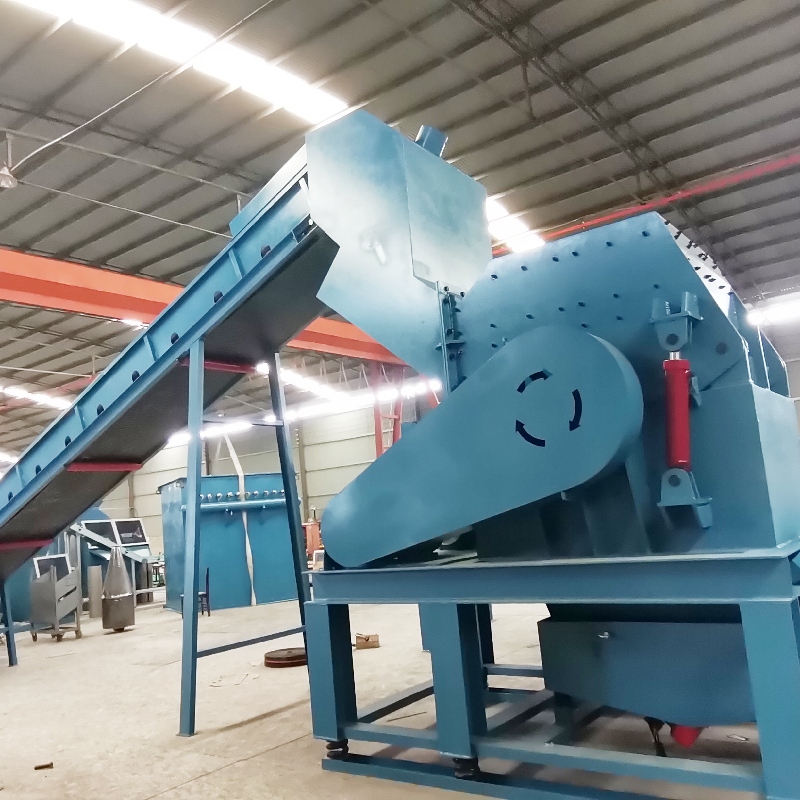

lis . 09, 2024 10:50 Back to list
The Rise of Metal Chippers Revolutionizing Waste Management
In an age where sustainability and efficient waste management are paramount, metal chippers have emerged as innovative tools designed to process scrap metal effectively. As industries evolve and the demand for recycled materials increases, understanding the functionality and benefits of metal chippers is crucial for businesses and environmental advocates alike.
What are Metal Chippers?
Metal chippers are heavy-duty machines engineered to process and shred various types of metal waste, including scrap from construction sites, manufacturing leftovers, and obsolete machinery. These machines utilize powerful blades to reduce metal pieces into smaller, manageable sizes, thereby facilitating easier recycling and disposal. The chipping process significantly enhances the scrap's value, making it more appealing to recycling plants that are always on the lookout for high-quality materials.
The Process of Chipping Metal
The operation of metal chippers is both sophisticated and straightforward. Initially, the metal waste is fed into the chipper's hopper, where powerful blades or hammers come into action. The chipping mechanism is designed to handle diverse metals such as steel, aluminum, and copper. As the metal is processed, it is cut and shredded into small, uniform pieces, often referred to as chips. These chips can then be sorted, compacted, and transported to recycling facilities without requiring extensive manual labor.
One of the most significant advantages of metal chippers is their ability to turn unwieldy and bulky metal scraps into manageable chips, reducing storage space requirements and enhancing transportation efficiency. Without the proper tools, piles of scrap metal can take up vast amounts of space, posing hazards and potentially incurring additional costs for businesses. By employing metal chippers, companies can streamline their operations, minimize waste, and improve workplace safety.
Advantages of Using Metal Chippers

1. Efficiency Metal chippers can process large quantities of scrap metal in relatively short time frames. This efficiency allows businesses to keep up with production cycles and maintain competitive advantages in fast-paced industries.
2. Cost-Effectiveness By optimizing the recycling process, businesses that invest in metal chippers can reduce their disposal costs. The chips produced may attract higher market prices than unprocessed scrap, improving the financial return from recycled materials.
3. Environmental Impact The use of metal chippers significantly contributes to environmental sustainability. Recycling metal reduces the need for raw material extraction, a process that can be energy-intensive and harmful to ecosystems. By transforming scrap metal into chips, the recycling process becomes more accessible and efficient, promoting a circular economy.
4. Versatility Metal chippers can handle various metal forms, from sheets and bars to intricate machinery parts. This versatility makes them indispensable in sectors ranging from construction to automotive manufacturing.
5. Safety and Cleanliness By automating the metal shredding process, chippers reduce the risks associated with manual scrap handling. Additionally, they create a cleaner workspace by minimizing the clutter and hazards associated with large piles of scrap.
The Future of Metal Chippers
As industries move toward greener practices, the demand for efficient waste management solutions like metal chippers is expected to grow. Innovations in technology will likely lead to the development of even more effective chipping machines that can process different materials and optimize energy consumption. Future advancements may also incorporate smart technologies, enabling real-time monitoring and management of metal processing operations.
In conclusion, metal chippers play a vital role in modern waste management, providing a sustainable solution to the growing problem of scrap metal disposal. Their efficiency, cost-effectiveness, and positive environmental impact make them essential tools for businesses committed to recycling and reducing waste. As we continue to push towards a more sustainable future, metal chippers stand poised to lead the charge in transforming scrap metal into valuable resources. Embracing these technologies not only helps businesses thrive but also paves the way for a cleaner, greener planet.
Latest news
Troubleshooting Common Eddy Separator Problems
NewsJul.04,2025
The Role of Metal Recycling Plants in Circular Economy
NewsJul.04,2025
The Impact of Recycling Line Pickers on Waste Management Costs
NewsJul.04,2025
Safety Features Every Metal Shredder Should Have
NewsJul.04,2025
How Industrial Shredders Improve Waste Management Systems
NewsJul.04,2025
How Cable Granulators Contribute to Sustainable Recycling
NewsJul.04,2025